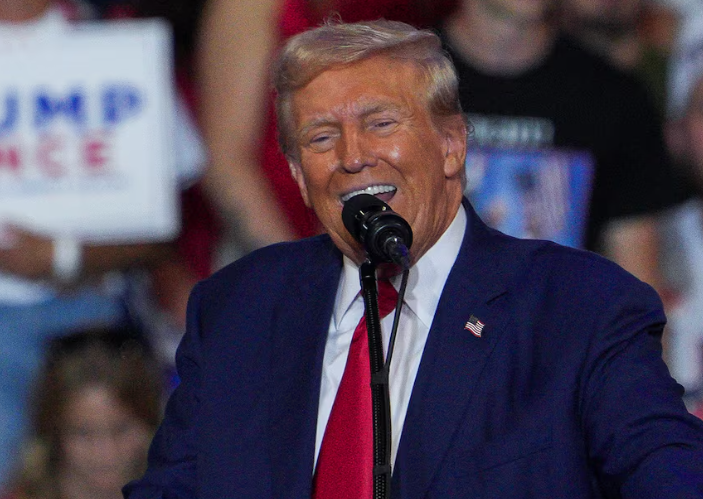Prosecutors in Manhattan have proposed that former President Donald Trump avoid prison time for his conviction related to hush money payments to adult film actress Stormy Daniels, considering his recent presidential election victory. However, they firmly opposed dismissing the case outright, arguing that the conviction should stand to preserve public confidence in the justice system.
Trump Seeks Dismissal, Prosecutors Advocate for Alternative Solutions
In a court filing made public on Tuesday, Manhattan District Attorney Alvin Bragg’s office urged Justice Juan Merchan to reject Trump’s request to dismiss the case. Trump’s legal team argued that the conviction could interfere with his ability to govern effectively when he takes office on January 20.
Prosecutors countered by suggesting that Merchan could issue a non-incarceration sentence, citing presidential immunity as a potential basis for avoiding prison. They emphasized that such an approach would respect constitutional concerns without nullifying the indictment or the jury’s guilty verdict.
The Charges and Their Implications
Trump’s conviction stemmed from a $130,000 payment made by his former lawyer, Michael Cohen, to Stormy Daniels before the 2016 election to secure her silence about an alleged affair, which Trump denies. A Manhattan jury found Trump guilty in May on 34 counts of falsifying business records to conceal his reimbursement of Cohen. This marked the first time a U.S. president, past or present, had been convicted of a criminal offense.
Although falsifying business records can carry up to four years in prison, legal experts have long speculated that Trump’s advanced age, lack of prior criminal history, and political circumstances would make incarceration unlikely.
Debate Over Presidential Immunity
Trump’s legal team argued for dismissal based on presidential immunity, claiming that prosecutors improperly relied on statements Trump made during his presidency and testimony from White House aides. The U.S. Supreme Court ruled in a separate case that presidents have broad immunity from prosecution for official acts, but prosecutors in this case argued that the hush money payment involved “purely unofficial conduct.”
“Presidential immunity is not a shield for personal criminal liability,” the prosecutors wrote, dismissing Trump’s legal team’s interpretation of the doctrine.
Delays and Future Proceedings
Justice Merchan has delayed sentencing indefinitely, giving Trump time to pursue dismissal. Prosecutors proposed deferring all proceedings until Trump completes his presidency in January 2029. Alternatively, they suggested a non-incarceration sentence to minimize the impact on his presidency.
Trump’s lawyers rejected this idea, calling it “ridiculous,” and maintained that the conviction should be nullified. Meanwhile, Trump has called the case a politically motivated effort by Bragg, a Democrat, to undermine his campaign.
Broader Legal Context
Trump faces three other criminal cases, including charges involving classified documents and attempts to overturn the 2020 election. He has pleaded not guilty in all cases. Following his election victory, the Justice Department moved to dismiss the two federal cases against him, leaving the state-level charges in Manhattan as a focal point for legal proceedings against the president-elect.
Prosecutors have made it clear that they do not intend to wipe out the jury’s verdict in this case, emphasizing the need to uphold public trust in the legal system while balancing the complexities of Trump’s presidential role.

